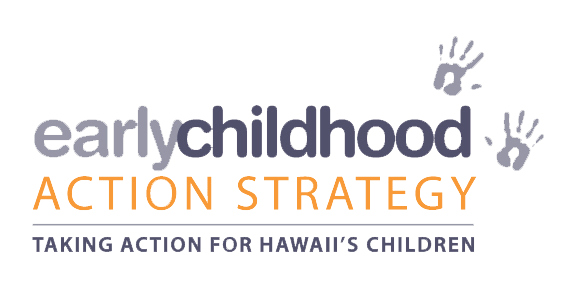Vision
Hawai`i’s youngest keiki are healthy, safe and ready to learn.
Mission
To bring together government and non-government organizations to align priorities for keiki prenatal to age eight and to strengthen and integrate the early childhood system by streamlining services, maximizing resources and improving programs to support our youngest keiki.
ECAS Goals
ECAS partners work across sectors to advance four core goals.
(1) Babies are born healthy
(2) Keiki are safe, healthy and develop to their full potential
(3) Keiki are ready for school when they enter kindergarten
(4) Keiki are thriving by third grade
ECAS goals are also reflected in the Hawai'i Early Childhood State Plan, which includes data-informed measures of how well our youngest keiki are doing on each of these dimensions.
Theory of Change
When babies are born healthy, into safe and nurturing families, and have equitable access to high-quality programs and services, they have a much greater chance of developing to their full capacity, reaching school ready to thrive and being set on a pathway to success.
The following core factors are integrated into each project:
Cultural and Linguistic Responsiveness
Family Partnership
Professional Development
Local/National Research
Community Engagement
The ECAS Network of partners aspire to:
Put children and families first
Honor differences in culture and language across communities
Address the needs of each island and provide opportunities for all to participate
Be evidence-based and data informed
Be implemented through the work of many government and non-government partner organizations
Network Structure
Six Core Content Teams work collaboratively to determine and implement systems-level strategies around their focus areas.
Some priorities emerge and grow into initiatives with cross-team participation.
ECAS also engages in Policy Efforts and Data Efforts to help support and further the goals developed across the network.
Conditions of Systems Change
ECAS works to influence the core conditions that enable or impede Systems Change.
Framework adopted from: Kania, J., Kramer, M., Senge, P. The Water of Systems Change. Foundations Strategy Group.



